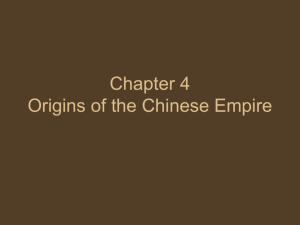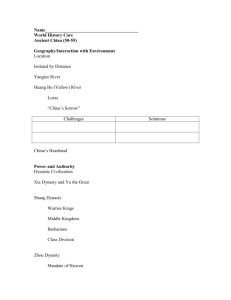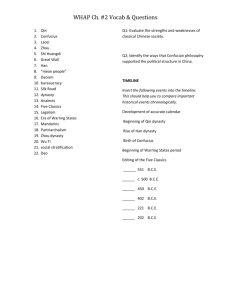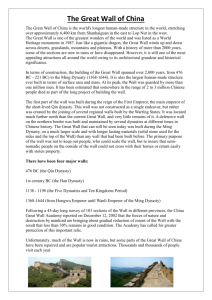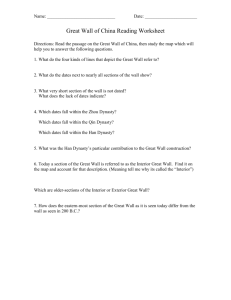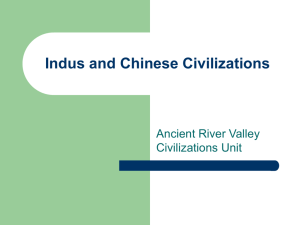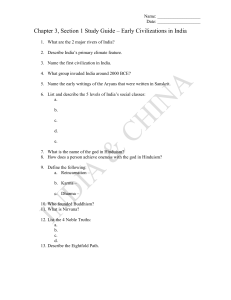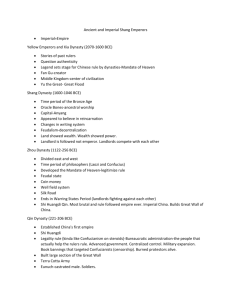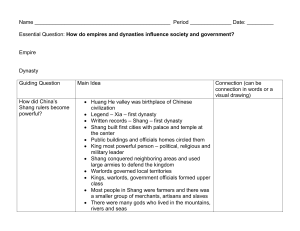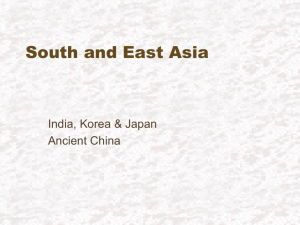ANCIENT DYNASTIES OF CHINA
advertisement
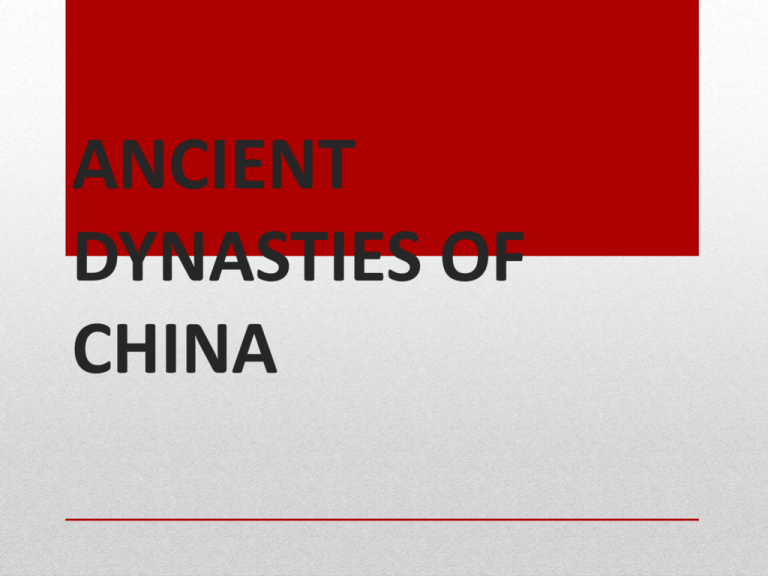
ANCIENT DYNASTIES OF CHINA Geography and First Dynasty • Two major rivers • Chang Jiang – also called the Yangzi • Huang-He – also called the Yellow River or the River of Sorrows • Isolation due to mountains, hills, and desert = protects from invasion • Xia Dynasty is considered to be the beginning of Chinese civilization • However people can’t find evidence that it actually existed Shang Dynasty 1766 -1122 BC • Farming society ruled by an aristocracy whose major concern was war • Aristocracy = an upper class whose wealth is based on land ownership • Strong monarchy • The king surrounded himself with a court = gathering of wealthy nobles • Divided his kingdom into territories and appointed governors to rule them • The king also had a large army • Kings were buried in royal tombs along with their valuable possessions and sacrificed prisoners of war and servants • Belief in the afterlife • Shang religion centered on the idea of ancestor worship called veneration of ancestors • Wanted to keep the family spirits happy • Used oracle bones to ask questions of the gods • Wrote questions on bones, inserted a hot piece of metal into the bone until it cracked, and then read the cracks to get an answer • Shang achievements • Development of Chinese writing, which used picture symbols • Came up with a precise calendar Zhou Dynasty 1100 – 256 BC • Longest-lasting dynasty in Chinese history • The king was the head of the gov’t and was seen as a link between heaven and Earth • Had a large and complex bureaucracy • Territories governed by members of the aristocracy appointed by the king • The Zhou dynasty claimed it ruled China because it possessed the Mandate of Heaven • Gods gave “permission” to rule China • Idea that gods would support a just ruler, but would not allow anyone corrupt to hold power • The Shang were overthrown because they had lost the favor of the gods • Set up a “right of revolution” which led to dynastic cycles • Described the rise and fall of dynasties in China • Family was the basic social and economic unit • Achievements • Development of two Chinese philosophies = Confucianism and Daoism • New weapons, such as the catapult and first cavalry • Learned how to use iron, introduced coins to China and began to use chopsticks Qin Dynasty 221 – 206 BC • Defeated chief rivals to become the new dynasty • First to create a unified Chinese empire • The word China is derived from the Qin • Ruler Qin Shi Huangdi became the “first emperor” • Regime = the govt in power • Shi Huangdi adopted Legalism as the official ideology to build a strong centralized gov’t – a highly efficient and powerful government is the key to social order. Qin and Han Dynasties Chapter 8, page 225 • Achievements • Invented papermaking, along with the iron plow and wheelbarrow • Seismograph – earthquakes were sign’s of heaven’s disapproval • Compass, sundial, watermill, and ship’s rudder • Acupuncture = inserting fine needles into the skin at specific points to cure disease and relieve pain • Silk Road • Road that linked China to Rome, was 4,000 miles long • Traded in luxury goods such as silk, spices, teas, and ivory • Dangerous due to geography and bandits • Women • “raising daughters is like raising children for another family”

